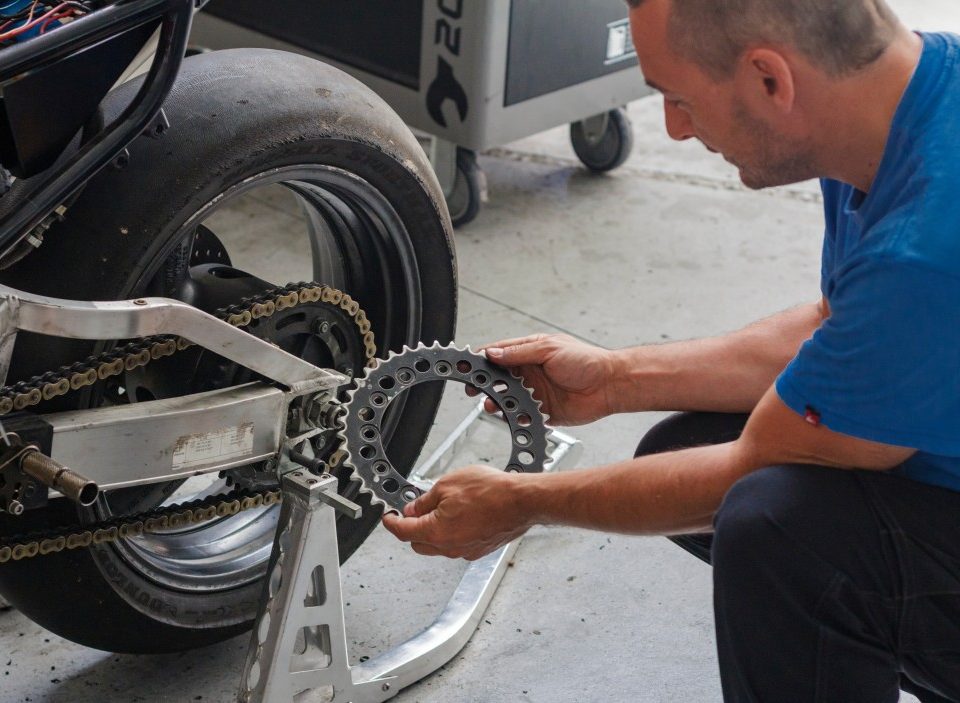Motorcyclist Harmed by Cars Backing Out of Driveway

Pedestrian Hurt in Crosswalk by Motorcycle
May 21, 2022
Why You Should Hire a Motorcycle Accident Attorney?
May 24, 2022There may be several factors that lead to a collision between a motorcycle or a car when a vehicle backs out of a driveway. Generally, the vehicle must yield to any oncoming traffic, including pedestrians and cyclists. The collision may occur in either reverse or straight on. The driver may also be distracted or texting. The resulting collision can lead to injury or even death.
Drivers fail to yield the right of way to oncoming traffic
Car accidents are often caused by failure to yield. However, sometimes it is not obvious that the other driver did not have the right of way. Even if the other driver doesn’t have the right of way, it does not mean they should not drive. It just means that you must yield. Luckily, most drivers do this without even realizing it. The law requires them to yield. Alabama law requires drivers to yield the right of way. This can lead to more than 20,000 accidents per year. A driver following all the rules of the road may not realize the other driver has not yielded.
A failure to yield the right-of-way to an oncoming vehicle is one of the most common causes of fatalities in traffic accidents. It is important to keep the right-of way rules in mind when driving in a safe area. While understanding when you have the right-of-way is important, knowing when you don’t is even more important. Every driver is responsible for protecting pedestrians and other drivers, and preventing accidents.
Failure to yield the right-of-way to another vehicle may result in a collision, including a car-pedestrian, car-motorcycle, or car-bicycle accident. In these cases, the driver must always remain alert and slow down when approaching a three-way stop. It’s not easy, even though it seems simple. It’s important to be aware and obey traffic signals, and to stop when they are being used. Lastly, remember that the right-of-way rule applies when a vehicle is backing out of a driveway.
If you must make a right turn from a driveway, stop for oncoming traffic before you exit your driveway. In addition, drivers must yield the right-of-way to pedestrians in crosswalks. They must stop and yield to the vehicle in front. At the very least, they should be aware of pedestrians in a crosswalk when backing out of driveway.
Drivers often fail to yield the right of way when backing out from driveways. This can be a fatal mistake because the driver may not notice they are backing out of a driveway and may be unaware of it. Although a driveway is not usually a narrow strip of land it is still an entrance. If the driveway is the only way to your home, you must obey the law and give way to all vehicles.
Failure to yield the right-of-way to an oncoming vehicle when backing out of a driveway is considered a primary cause of these accidents. Sometimes, the driver backing out from a driveway was distracted and could have caused an accident. It is important to remember this law when backing out of a driveway to prevent serious injuries to other drivers.
Distracted driving
The danger of distracted driving is a well-known fact. Drivers who are on the phone, texting, using the navigation system, or eating while driving put their attention elsewhere, endangering themselves and others on the road. Distracted drivers are more likely to cause injury and accident than drivers who aren’t distracted. According to the National Highway Traffic Safety Administration, almost half a million crashes each year involve distracted drivers. Distracted drivers are also responsible for a higher number of pedestrian deaths and injurious accidents.
Riders on motorcycles are especially vulnerable to distractions while riding. A motorcycle rider without a seat belt can be thrown from the bike and inflicted serious injuries. Motorcycles are more susceptible to distractions than other vehicles and lack protective features. As a result, motorcycle drivers are much more likely to be injured. This is especially true if the driver is texting, talking on the phone, or texting.
Distracted driving can also be caused by the driver not adjusting the temperature. Although drivers are not required to do this by law, it is safer to adjust the temperature before leaving the driveway. Moreover, it is important for drivers to give enough space to bikers while passing or turning. When changing lanes or turning, drivers should be aware of all types of vehicles. Drivers sometimes lose their sense of security when backing out of driveways.
A distracted driver fails to notice a motorcycle, rear-ends a car, and fails to yield the right of way. Distracted drivers may also fail to yield the right of way to pedestrians, leading to accidents in which a car rear-ends a motorcyclist. The driver may not even know that he or she was sharing the right-of-way. Distracted drivers may not be able to see their blind spots before turning.
Teen drivers should not text or talk while driving. Drivers must be able to focus on the road at all time. This means avoiding interruptions of conversation, listening to music, or reading a text. Teenagers should also refrain from talking or texting while driving. Parents should ensure that their teens are aware of the dangers of distracted driving. Parents can prevent many motorcyclist accidents by enforcing traffic rules.
In these cases, the at-fault driver is the one who backs out from the driveway. Sometimes, the stationary vehicle was illegally parked. The driver should have checked the driveway before backing out. It is presumed that he or she was not paying attention to the road when the crash occurred. So, if a distracted driver is responsible for the crash, the driver will be responsible for the accident.
Failure to yield the right-of-way to oncoming traffic
One common mistake that often leads to a motorcycle accident is the failure of motorists to yield the right-of-way to motorcyclists. Drivers must yield to motorcyclists and other vehicles in their lane. NHTSA estimates that about 35 percent of fatal motorcycle accidents are caused by passenger vehicle drivers not yielding to motorcyclists.
Motorcyclists are often denied the right-of way because motorists have many reasons to do so. Drivers in passenger vehicles can be distracted by their cell phones, electronics, talking to passengers, or other distractions. Drivers may also be impaired by drugs or alcohol, which can cause them to lose their concentration and not yield to oncoming traffic. The legal consequences of this negligence can be extensive.
Failure to yield the right-of-way may also be a result of misunderstanding the law. Motorcyclists might not see a motorcycle approaching and may speed up to pass it. A driver may also misjudge the speed of an oncoming motorcyclist because it is obscuring their view. On top of that, some motorists may make illegal left turns where the motorcycle has the right-of-way.
In addition to these incidents, failing to yield the right-of-way can also lead to a collision. A “T-bone” collision is when an oncoming vehicle crashes into the side of the car that is following it. This happens when the oncoming vehicle fails to yield the right-of way to the oncoming vehicle. Maine law states that a driver’s license will be suspended if they violate the right-of way to an oncoming vehicle.
Motorcyclists are dangerous. Make sure you yield to them when you can. If they don’t, they could hit your bike or injure yourself. A motorcycle’s weight and size make it a vulnerable target for an oncoming vehicle. Avoiding an accident is as simple as yielding to traffic. For a free consultation, contact your local traffic police department if you are unsure how to yield the right of way.
The Wallace Law Firm, L.L.C. can help you get compensation for your motorcyclist accident. Your recovery may include medical bills, lost wages, and pain and suffering. You may also be eligible to recover the cost to hire someone to help you. This is a legal battle, but you can win with a skilled Virginia car accident attorney.
Failing to yield the right of way to another driver can cause a variety of injuries, including fatalities. Failure to yield the right-of-way to another vehicle causes 7 percent of fatal motorcycle accidents. You can find out more about these statistics by calling a free long beach motorcycle accident attorney. They’ll be happy to help you get the compensation you deserve.



